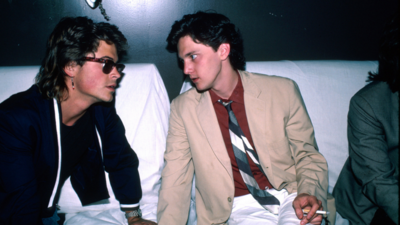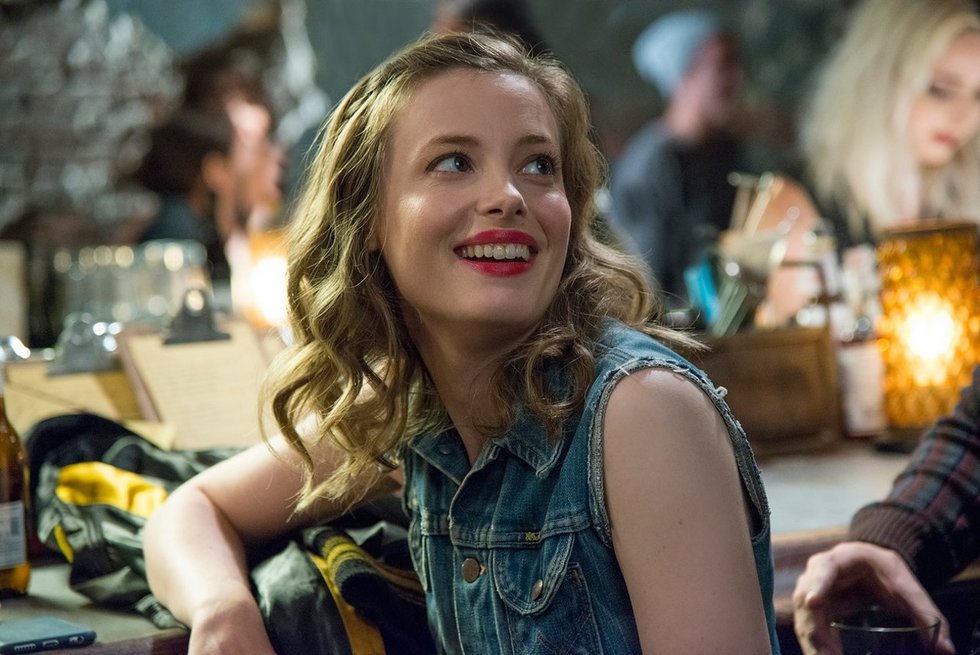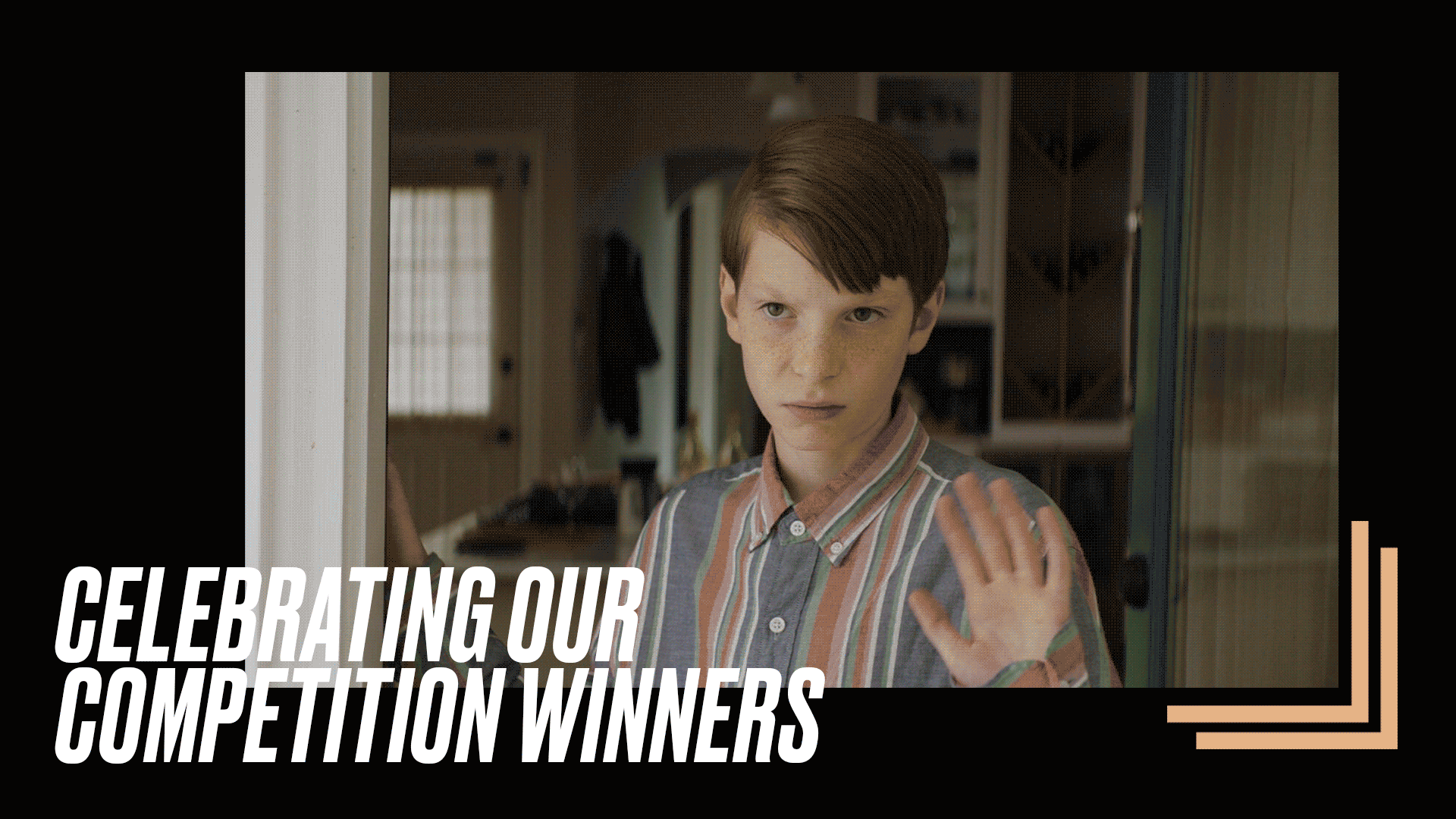
BY MELINA GILLS |
Gillian Jacobs Discusses Tribeca 2016's DEAN and DON'T THINK TWICE and Learning to Embrace Success
The star of the acclaimed Netflix series LOVE had a special Tribeca 2016 with roles in two breakout films, DEAN and DON'T THINK TWICE. Here, she discusses working with some of the funniest people in comedy and accepting fame.

Gillian Jacobs stars in two of Tribeca 2016's most acclaimed films: Dean, which won the Founders Award for Best Narrative Feature, and Don't Think Twice, Mike Birbiglia's nuanced sophomore comedy feature. Jacobs has been acting from a very young age and attended New York City's prestigious Juilliard performing arts school, where, as she explains in an article she wrote for Lena Dunham's online newsletter, Lenny, she received little encouragement.
It was only later that she embraced her strong comedic abilities, which gained praise in the ensemble sitcom Community, a rollercoaster series that at its best was a deliriously funny explosion of pop culture references and character eccentricities. Jacobs played the tree-hugging, judgmental feminist Britta, with a soft spot for the arrogant Jeff (played by Joel McHale) and an underlying rage that regularly, and hilariously, floated to the surface. She was subsequently cast as a minor player in several mainstream comedies, but it wasn't until this year's Netflix romantic comedy series Love that her talent has finally been on full display.
In Love, produced by Judd Apatow, Jacobs is a beautifully unpredictable eruption of emotion, strength, bitterness, and, yes, love. The performance, alternately subtle and extreme, is touching and comical, identifiable and elusive. Jacobs continues to master these opposing rhythms and tones as the lead of Don't Think Twice and in the smaller role of writer/director/star Demetri Martin's love interest in Dean.
Jacobs sat down with TribecaFilm.com to discuss those two Tribeca 2016 standouts and her rich, ever-burgeoning career.
What attracted you to Dean and Don't Think Twice?
Don't Think Twice scared me because I don't have an improv background. But I felt that I should do it because it scared me. It was a different sort of character for me. It was interesting to see someone with a lot of talent but not the same ambition that everyone else has. It's okay to want different things. What externally looks like success might not feel right. It’s better to be honest about what you want to do than to do what others think you should.
For Dean, I thought it was one of the most honest depictions of grief that I had read. It took a thoughtful and nuanced view on what it was like to lose a parent as an adult, which is not something you always see. He was always saying something true with the script. I was a fan of Demetri's standup and his drawings. I thought his jokes were genuinely good. His script made me laugh. He added drawings to the script that were great but also thoughtful and touching while grappling with death.
I've played similar characters [to the one in Dean], but in Don't Think Twice she felt very different to me. You can show people, "Hey, I can do this too." I've played people who are distant from who I am personally, but these two are slightly closer.
How were you cast in Dean and Don't Think Twice?
I had other friends who had been talking to Demetri, so it wasn't a straight offer. I was weirdly in Monaco and Community had been canceled, and Joel and I were still promoting a failed television show in Europe. I had a Skype meeting with Demetri while in my hotel room in Monaco. We had a really nice conversation. We talked about grief and how you deal with losing parents, and all the tricks that you play to try to distract yourself from grief: not making the best choices, being cold to the people you love, and taking a year to come to terms with how you're feeling. Maybe I had met him once or twice, but I didn't really know Demetri.
It was the same with Mike Birbiglia. I had met him once, and then we had a Skype conversation. We were shooting at the Magic Castle for Love, and I talked to him on the phone from my trailer. I had a couple Skype conversations with him and put myself on tape filming myself in my living room. I had met Keegan socially. I didn't know most of the cast. All of us becoming a group happened over two weeks of rehearsal. It was important for us to feel like a believable improv group that had been together for years. Frank Oz told Mike, "You should have the cast go bowling," so we went bowling in Times Square and then we were an improv group.

How was it to play male-written female characters for Martin and Birbiglia?
Demetri really consciously wanted to make improvements to the female character. From the first script to the conversations we had to the final scripts, he wanted to keep making her more and more of a three-dimensional person. It's unusual that she has a job and talks about what she does professionally. A lot of time with female characters, you don't really see them working like you see male characters. I know that seems small, but to me it says a lot when a man is writing a female character and thinks to give her a job. You also see the same jobs, but hers is off-center, which was refreshing. She's not falling head over heels in love with him. So often you see the woman pursuing and pining for a guy. In both films, the woman chooses to end the relationship, and is not passive. I liked seeing that.
You gave a shout out to the Broad City girls on Twitter—will we be seeing you on the show?
Oh my god, I would love that! Maybe if you write it in the article that I'm in Broad City, they'll have to write me on the show.
I met them at a Variety event; I was randomly seated with Abbi and Ilana, and the show had just come out. It was one of those nice times when you go to an event thinking, "I'll get a free meal and go home," but then you make friends. I know [Broad City producers and writers] Lucia [Aniello] and Paul [W. Downs] as well. I'm a real fan of all of theirs. I fell in love with the show when Abbi yells about the Bed Bath & Beyond coupons never expiring. It's one of those life moments; you've had that fight with someone. And they put it on screen.
You also shouted out Alice Guy. You are very expressive with your face in Love and other projects—are you influenced by the films of the silent era?
I went to a birthday party where they showed Singin' in the Rain, and it brought back memories of when I was child and my parents took me to see a Greta Garbo and John Gilbert film with a live accompaniment. I've probably seen more silent films than most people in my generation. I've always been nerdish in my interests.
[Learning to be very expressive] came from Community, where you would be in group scenes but have to stay engaged the whole time. You have to be an active listener. Your character still has to have a response, even if you don’t have lines. Six years of Community have really rubberized my face; I've become more expressive now than I was before that. Trying to be an active listener is something I really thought about on that show.
Your character in Don't Think Twice prefers to be part of a group and shies from any individual attention. Are you like that in real life, too?
I noticed I have an inability to take compliments. Ilana called me out on it because she texted me congratulations about Love and I immediately changed the subject to ask her about Broad City. She said, "No, no, no—take the compliment!"
I find that a lot of actors are shy. We like the attention when it's through a character. If you give me a character, costume, and lines, I'll do just about anything; if it's just me, I feel more anxiety and fear. I don't want to be in the center. I find this duality with a lot of actors' personalities. Some are total extroverts and raconteurs, but a lot of us would prefer to be in a corner just talking to one person.

How have you approached transitioning into leading roles?
I've been the protagonist before but in indie films that no one saw. I feel that I've had two halves of my career. There's up to Community, where I was doing independent films where I was the lead, but they were not seen by a large audience and were dramatic. And then there's Community, where people think of me in relation to comedy. I'm now marrying the two halves of my career. It's an interesting moment. I'm doing more things in which I'm the lead, but they're blending comedy and drama.
It's hard to feel success. My friend was asking me, "How do you feel with Love and Don't Think Twice?" I don't feel anything. I had a meeting recently, where they said, "There's this great script and you’d really like it. She’s the lead, but we’re going to need someone more famous than you." They dangle the carrot of these great roles, but you can't have them. You get stuck on what you don't have instead of what you've done. I'm going to have to learn how to internalize happiness, accept complements, and feel accomplished. My therapist and I will work on that—that will be next week.
In your Lenny article titled "Learning to How to Act Like Myself," you mentioned being criticized by your Juilliard teachers for not having enough initiative and being too passive as an actor. Do you feel that has changed?
Yes, definitely. I feel that sometimes as an actor you have to learn the lessons the hard way. "I should have spoken up, I should have asked that question." [After stepping in to address a logistical issue working on an independent feature], I realized, if I don't ask those questions, I'm going to be miserable. On a practical level, thinking all the way through, I have to make sure everyone else has thought this all the way down the line. You have to learn to take care of yourself. I've learned from more experienced actors by listening to the questions they ask.
In a performance way, about making decisions about the character, I have also changed. It's great to work with people like [Love co-star] Paul Rust and Judd Apatow, who are very collaborative and want your opinion and asked me to come to the writers’ room and talk. It’s a very open environment. When I have ideas, they’re taken seriously, and I see them incorporated into the scripts. Before we started shooting the first season, we shot rehearsals, and they worked my improvisations into the scripts.
The same thing with Demetri and Mike. When we did the rehearsal for Don't Think Twice, there was a scene where they go in and confront Keegan [Michael Key], and originally my character went in, and I said I really don’t think she would go in. He was like, "Oh, you're right!" As we shot it, I stayed out. Same thing with Demetri; from our conversations, I saw the changes in the script. I try to give respectful ideas and thoughts. I try to do things that service the story better and make a better character. I respect writers. The worse thing is to have an actor come and say they really want to be wearing some ball gown because they just want to wear a ball gown. I try to enhance what they’ve written and not try to make the movie I wish they had written.
Will you write any scripts in the future?
I've really enjoyed writing these Lenny articles, and I'm working on a third one. I directed a short documentary, which I really enjoyed. I think I would like to direct some more. I don't want to do what Mike and Demetri have done—write, direct, and act in the same thing because it's so challenging. If I were to direct something, I wouldn't want to be in it, at least not initially. It's like I said about being afraid of doing improv and saying yes. I'm taking inspiration from Shonda Rhimes, and saying yes to things that scare me. So I think I will say yes, going forward.

